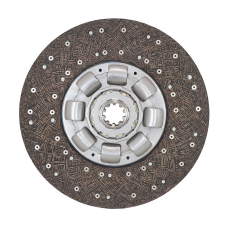Selecting a good clutch supplier requires a very critical observation of manufacturing tolerance. Such exact values indicate the feasible range of error in dimensions and characteristics of a part, which immediately influence clutch performance, durability and reliability. Mark Clutch has a tradition of quality and precision engineering which is based upon precise tolerances.
Component Dimensions and Geometric Accuracy
Exact dimensions and geometry of the components does not leave any room for error in smooth clutch functioning. Tolerances on the dimension, thickness, flatness and concentricity of critical components such as pressure plates, flywheels and clutch discs are supreme. Mark Clutch also employs the newest technology of CNC machining as well as the stringent quality control measures during manufacturing to see to it that each part meets these vital dimensional requirements. This fine tuning ensures perfect surfaces, uniform clamp load transfer and engaging features critical in optimum power flow during service and durability.
Material Hardness and Heat Treatment Consistency
The level of the functioning and durability of a clutch is greatly dependent on the exact hardness and metallurgy characteristics of the parts being used. Material hardness involves tolerances especially in the post-condition, which is heat treatment. Mark Clutch intends to apply a strict material test and a well-regulated heat treatment process. This is to make sure that parts such as pressure plates and intermediate plates reach specific hardness gradients so they can tolerate high temperatures, high-forces alternating loads or even multi-cycle loads without warping, cracking, or wear-off prematurely, and ensure consistent performance under challenging environments.
Surface Finish and Friction Characteristics
Finish of the friction faces and mating surfaces is important because they affect the friction coefficient, heat dissipation and wear resistance of the mating materials. Scale restrictions on surface roughness are critical. Mark Clutch specializes in maximizing these finishes to the finest precision surfacing projects. Our engineering makes sure the friction material is bonded to the core plate and in contact with the other surfaces in the best way possible, to ensure predictable engagement, minimization of judder and maximization of the service life of the friction assembly.
Assembly Stack-Up and Balance Tolerances
The total of tolerances involved in all parts assembled together is called the stack-up, and this should be carefully controlled so that the clutch can work normally and has dynamic balance. These are the clearances, the runout tolerances as well as the overall balance of the rotating assembly. Now precision manufacturing has been carried out by the Mark Clutch till the final assembly where accuracy to these tolerances is checked. This reduces vibration, proper bearing release travel, eliminates drag, and ensures smooth quiet operation, which directly leads to driveline refinement and component life.

 EN
EN
 AR
AR
 BG
BG
 HR
HR
 CS
CS
 DA
DA
 NL
NL
 FI
FI
 FR
FR
 DE
DE
 EL
EL
 HI
HI
 IT
IT
 JA
JA
 KO
KO
 NO
NO
 PL
PL
 PT
PT
 RO
RO
 RU
RU
 ES
ES
 SV
SV
 CA
CA
 TL
TL
 ID
ID
 LV
LV
 LT
LT
 SR
SR
 UK
UK
 VI
VI
 HU
HU
 TH
TH
 TR
TR
 FA
FA
 AF
AF
 MS
MS
 SW
SW
 GA
GA
 HY
HY
 KK
KK
